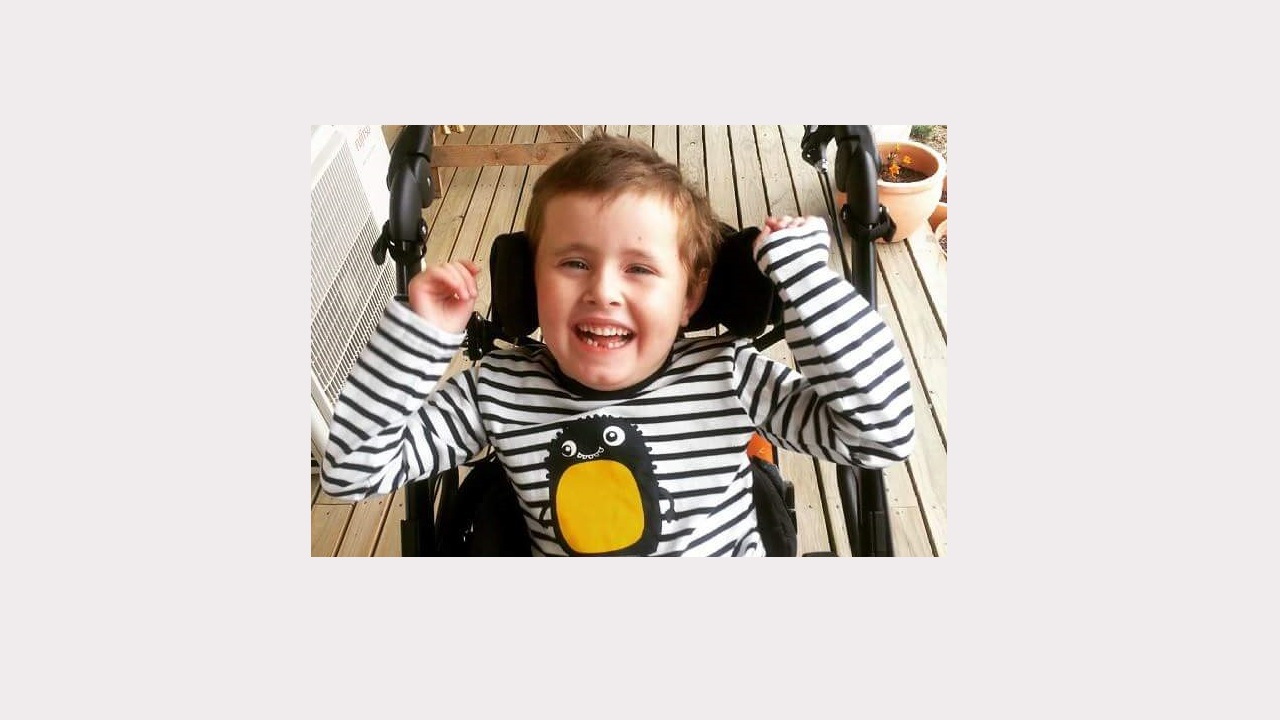Much joy to be found on life’s bumpy road
Much joy to be found on life’s bumpy road
by Frith Rayner
Wednesday, October 14, 2015
A new film, Joseph’s Story, illustrates how palliative care has enabled seven-year-old Joseph Stewart and his family to live well, despite his life-threatening condition.
Joseph Stewart loves nothing more than bouncing along a rough road in his wheelchair at his family property in Ballarat. Like most seven-year-olds, he also loves music and people and is curious about the world around him and eager to explore it.
Joe is also an occasional patient of Victoria’s palliative care units, accessing both local support from a family support worker, along with Royal Melbourne Children’s Hospital and Very Special Kids.
His story features in a new film, Joseph’s Story, recently launched by Palliative Care Australia (PCA) and Moonshine Movies.
As a three-month-old, Joseph started experiencing severe seizures. He was later diagnosed with early onset infantile epileptic encephalopathy, a life threatening condition.
When his paediatrician suggested Joseph was eligible for palliative care, his mother, Fiona Stewart, baulked at the idea.
“When he was first put forward for Very Special Kids, even though I knew I had a child with a severe medical condition, you don’t think of it in terms of palliative care. I probably thought about palliative care as the people that come in right at the end of life, in those last few weeks, but for us they have been so much more than that,” Fiona tells ehospice.
“I know I have a team of people around me, with Very Special Kids and the palliative care team at the [children’s] hospital who know him, who give such good care. So I know we have support around us and feel much more supported and empowered talking about what we want for Joe and us as a family.”
One of those team members is Marianne Collins, the regional family support worker with Very Special Kids. She has worked with the Stewarts for about five years and clearly has a soft spot for Joe.
“He’s an absolute delight! He has a beautiful smile and it lights up his face. He’s so interested in what is going on and he takes it all in. We had a Christmas event here and Santa was there with all the children and the presents, and Joe just loved it, all the activity, you could see the joy on his face,” Marianne says.
Despite having many years’ experience working with children and families in difficulty, from dealing with family violence to holding in school counselling roles, Marianne wasn’t sure if she could work in paediatric palliative care.
“I wasn’t sure I could distance myself from it emotionally. But I thought about all the other roles I had held and about three people asked me if I had seen the job. I thought ‘maybe I could do that’.”
The Stewarts know that despite Joseph’s current good health, he could deteriorate at any time. Last year he took a bad turn and spent eight weeks in intensive care. At that time they put an advance care plan in place for Joe.
“Through Very Special Kids they helped us to make plans and talk about end of life issues and what we wanted for Joe. So we know he would be taken care of and we have support to make decisions for him,” Fiona says.
Marianne also worked with the family to ensure Joe has an advanced care plan in place for Ballarat as well as in Melbourne.
PCA CEO Liz Callaghan says while paediatric palliative care can be a confronting topic for many people, it’s important to tell the stories of children living with life threatening conditions.
“Many families are isolated because people don’t know how to engage with them or talk about their child. It’s important we acknowledge children in palliative care and support them and their families.
“In Australia we have some wonderful paediatric services, but also issues like children in Tasmania needing to travel to Melbourne to get care or systems set up for adults trying to adapt to meet the needs of children.”
She says paediatric palliative care is a long-term relationship between carers and patients and their families, often spanning from birth to 18 years old.
“These families and clinicians work together for a very long time and it is a wonderful care situation for all concerned. It will often continue with the family after the child has passed away,” she says.
Marianne Collins says ‘resilient’ is the word that leaps to mind when thinking about the Stewarts, who have also done a great deal to support others in the region.
She has been working in palliative care now for five years, with a broad remit of work.
“We do anything really, anything that makes it easier for the families – sending grant applications, helping them apply for wheelchairs or for vehicles, we run Dad’s Dinners and sibling camps and Mum’s pamper days.”
While the work can take an emotional toll, Marianne says she wouldn’t be doing anything else.
“It’s an absolute privilege to work with these families, a great privilege. It is also an honour to be allowed to share in a family’s journey. These special families teach you so much.”
